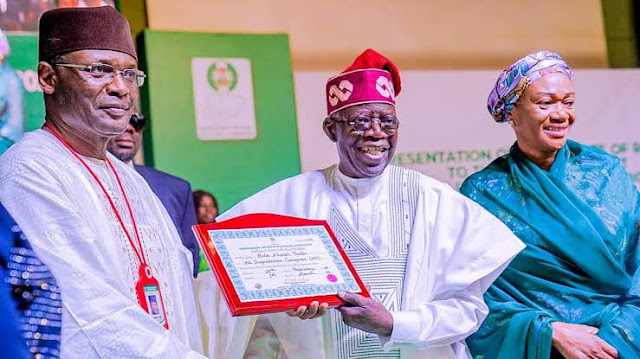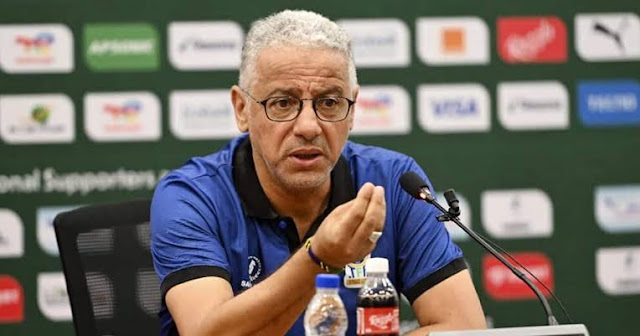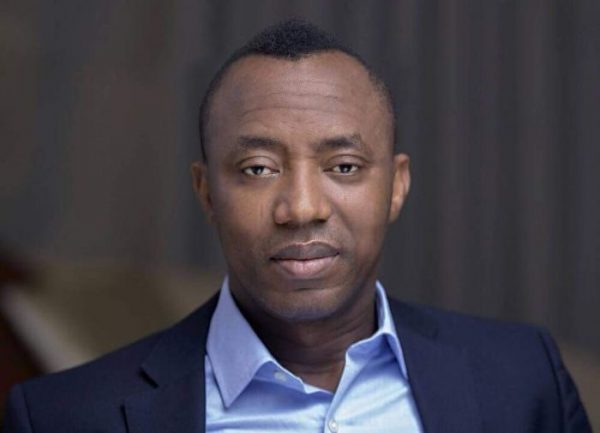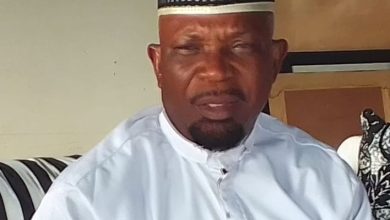As Nigeria approaches its next general elections in 2027, growing apprehensions have emerged regarding the integrity of the electoral process. Sources within the Independent National Electoral Commission (INEC) have revealed what they describe as a pervasive and coordinated scheme to undermine the democratic process. These allegations point to a deliberate effort by certain political actors to rig the upcoming polls, raising serious questions about the credibility of Nigeria’s electoral system and the future of its democracy. The disclosures have sparked widespread concern among stakeholders, including civil society organizations, political analysts, and the general public, who fear that such actions could destabilize the nation and erode public trust in its institutions.
Background: Nigeria’s Electoral History and Challenges
Nigeria, Africa’s most populous nation and a key player in the continent’s political and economic landscape, has a complex history with elections. Since its return to democratic governance in 1999, the country has held multiple elections, each accompanied by varying degrees of controversy, allegations of malpractice, and logistical challenges. While INEC has made strides in improving electoral processes over the years, including the introduction of technological innovations like the Bimodal Voter Accreditation System (BVAS) and the INEC Result Viewing Portal (IReV), issues such as voter suppression, ballot box snatching, and result manipulation have persisted.
The 2023 general elections, in particular, were a focal point of contention. Despite high expectations for a free and fair process, the polls were marred by reports of irregularities, including delays in result uploads, discrepancies in vote counts, and accusations of collusion between political actors and some INEC officials. These incidents fueled public distrust and led to numerous legal challenges, with opposition parties contesting the outcome of the presidential election. The fallout from 2023 has set the stage for heightened scrutiny as the 2027 elections draw closer, with many Nigerians demanding greater transparency and accountability from INEC.
Alleged Plot to Rig 2027 Elections
According to insider sources within INEC, a sophisticated plan is allegedly being orchestrated to manipulate the 2027 elections. The sources, who spoke on condition of anonymity due to the sensitive nature of the information, claim that the plot involves a network of political operatives, influential figures, and compromised electoral officials. The objective, they allege, is to secure favorable outcomes for certain candidates or political parties through a combination of voter disenfranchisement, result falsification, and strategic interference in the electoral process.
One of the key elements of the alleged scheme is the manipulation of voter registration. Sources indicate that there are plans to inflate voter rolls in certain regions with fictitious names or to suppress registration in areas perceived as opposition strongholds. This tactic, often referred to as “ghost voter” registration, has been a recurring issue in Nigerian elections. By padding voter lists with non-existent individuals, political actors can create opportunities for ballot stuffing or inflate vote totals in their favor. Conversely, deliberate obstacles to voter registration, such as limited access to registration centers or bureaucratic delays, could prevent eligible voters from participating, thereby skewing the electoral outcome.
Another concerning aspect of the alleged plot involves the deployment of technology. While INEC’s adoption of BVAS and IReV was intended to enhance transparency, sources claim that certain actors are exploring ways to exploit vulnerabilities in these systems. For instance, there are allegations of plans to disrupt the electronic transmission of results, either through cyberattacks or by undermining the infrastructure that supports these systems. Such actions could delay or prevent the real-time upload of results to the IReV portal, creating opportunities for manual manipulation of vote tallies.
Furthermore, the sources allege that financial inducements are being used to compromise INEC officials and other key stakeholders. Reports suggest that large sums of money are being offered to polling officers, ad hoc staff, and even security personnel to either overlook irregularities or actively participate in rigging efforts. This practice, if true, would undermine the impartiality of those tasked with ensuring a credible electoral process and could have far-reaching consequences for the legitimacy of the election results.
Political Context and Motivations
The alleged plot to rig the 2027 elections cannot be divorced from Nigeria’s broader political landscape. The country’s politics is characterized by intense competition, regional divisions, and a history of power struggles among its elite. The 2023 elections, which saw the All Progressives Congress (APC) retain the presidency, were marked by fierce rivalries among major political parties, including the Peoples Democratic Party (PDP), Labour Party (LP), and others. As the 2027 elections approach, the stakes are even higher, with political actors vying for control of the presidency, governorships, and legislative seats.
Analysts suggest that the motivations behind the alleged rigging scheme are multifaceted. For some, it is about consolidating power and maintaining dominance in Nigeria’s political sphere. The presidency, in particular, is seen as a prize that grants access to vast resources and influence. For others, the goal may be to secure regional or ethnic interests, as Nigeria’s politics is often shaped by identity-based considerations. Additionally, economic factors play a significant role, as control over government resources can translate into personal wealth and patronage networks.
The alleged involvement of influential figures and political operatives points to a broader issue of elite capture in Nigerian politics. Over the years, a small group of powerful individuals has wielded significant influence over the country’s political and economic systems, often to the detriment of democratic principles. The prospect of these actors orchestrating a rigging scheme raises concerns about the erosion of democratic norms and the entrenchment of a political culture that prioritizes power over accountability.
INEC’s Response and Challenges
INEC, as the body responsible for conducting elections in Nigeria, is under immense pressure to address these allegations and restore public confidence. The commission has faced criticism in the past for its handling of electoral disputes and logistical challenges, and the current revelations only add to its burden. In response to the allegations, INEC has yet to issue an official statement, but sources within the commission indicate that internal investigations are underway to verify the claims and identify any compromised officials.
One of the challenges INEC faces is its limited capacity to monitor and secure the entire electoral process. With millions of voters spread across Nigeria’s 36 states and the Federal Capital Territory, the logistics of conducting a credible election are daunting. The commission relies heavily on ad hoc staff, many of whom are temporary workers with minimal training, making them vulnerable to external influence. Additionally, INEC’s dependence on external vendors for technology and logistics raises questions about the security of its systems and the potential for external interference.
To its credit, INEC has taken steps in recent years to improve the electoral process. The introduction of BVAS, for instance, was a significant step toward reducing manual errors and enhancing voter accreditation. Similarly, the IReV portal was designed to promote transparency by allowing citizens to view election results in real time. However, these innovations have not been foolproof, as evidenced by the challenges encountered during the 2023 elections. Technical glitches, inadequate training for polling staff, and allegations of deliberate sabotage undermined the effectiveness of these systems, and similar issues could resurface in 2027 if not addressed.
Implications for Nigeria’s Democracy
The allegations of a plot to rig the 2027 elections have far-reaching implications for Nigeria’s democracy. At a time when public trust in institutions is already fragile, any perception of electoral manipulation could further erode confidence in the democratic process. This, in turn, could lead to voter apathy, as citizens may feel that their votes do not count. In a worst-case scenario, widespread rigging could trigger protests, violence, or even a broader crisis of legitimacy for the government.
Nigeria’s history provides ample evidence of the dangers of electoral malpractice. The annulment of the 1993 presidential election, widely regarded as one of the country’s freest and fairest, led to a prolonged period of political instability and military rule. More recently, disputed elections have fueled tensions, with some regions experiencing post-election violence. The 2027 elections, if marred by rigging, could exacerbate existing divisions along ethnic, regional, and religious lines, potentially destabilizing the country.
Beyond domestic implications, the integrity of Nigeria’s elections has regional and international significance. As a leading democracy in Africa, Nigeria’s electoral conduct is closely watched by other countries and international organizations. A flawed election could damage Nigeria’s standing on the global stage and undermine its ability to advocate for democratic values in the region. Furthermore, it could discourage foreign investment and development assistance, as international partners may be wary of engaging with a government perceived as illegitimate.
Calls for Reform and Safeguards
In light of the allegations, civil society organizations, political analysts, and concerned citizens are calling for urgent reforms to safeguard the 2027 elections. One of the key recommendations is strengthening INEC’s independence and capacity. This includes ensuring that the commission is adequately funded and insulated from political interference. There have been calls for the appointment of INEC’s leadership to be more transparent and merit-based, reducing the risk of partisan appointments.
Another critical area of reform is voter education. Many Nigerians, particularly in rural areas, lack adequate information about the electoral process, making them vulnerable to manipulation. Civil society groups are advocating for robust voter education campaigns to empower citizens to participate actively and hold officials accountable. Additionally, there is a push for greater engagement with technology, including the use of blockchain or other secure systems to enhance the transparency and security of election results.
Security is another pressing concern. The role of security agencies in elections has been controversial, with allegations of bias and complicity in past polls. To address this, stakeholders are calling for clear guidelines on the deployment of security personnel during elections, as well as mechanisms to ensure their neutrality. Training programs for security forces could also help prevent the misuse of authority and ensure that voters are protected rather than intimidated.
International observers also have a role to play. Organizations such as the African Union, the Economic Community of West African States (ECOWAS), and global bodies like the United Nations have historically monitored Nigerian elections. Their presence can serve as a deterrent to electoral malpractice and provide an impartial assessment of the process. However, observers must be proactive in identifying and reporting irregularities, rather than merely issuing post-election reports.
The Role of Technology in Ensuring Electoral Integrity
Technology has become a double-edged sword in Nigeria’s electoral landscape. While innovations like BVAS and IReV have the potential to enhance transparency, they also introduce new vulnerabilities that must be addressed. Cybersecurity experts have warned that electoral systems are prime targets for hackers, particularly in politically charged environments. To mitigate these risks, INEC must invest in robust cybersecurity measures, including regular audits of its systems and partnerships with reputable tech firms.
Moreover, the commission could explore additional technological solutions, such as biometric voter verification systems that are resistant to tampering. Blockchain technology, which offers a decentralized and transparent way to record transactions, could also be adapted for electoral purposes, ensuring that results are immutable once recorded. However, the adoption of such technologies must be accompanied by comprehensive training for INEC staff and public awareness campaigns to build trust in the systems.
Public Reaction and the Path Forward
The revelations about the alleged plot to rig the 2027 elections have sparked outrage among Nigerians, many of whom are already disillusioned with the political system. Social media platforms, particularly X, have been abuzz with discussions, with hashtags calling for electoral reform and accountability trending in recent days. Citizens are expressing frustration with the recurring cycle of electoral controversies and are demanding concrete action to protect their votes.
Political parties, too, have weighed in on the issue. Opposition parties have seized on the allegations to criticize the ruling APC, accusing it of undermining democracy. The APC, in turn, has dismissed the claims as baseless and politically motivated, urging Nigerians to focus on the government’s achievements rather than unverified allegations. This back-and-forth has further polarized the political landscape, underscoring the need for dialogue and consensus-building among stakeholders.
As the 2027 elections approach, the onus is on INEC, the government, and civil society to work together to ensure a credible process. This will require a multifaceted approach, including institutional reforms, technological advancements, and robust civic engagement. The Nigerian public, too, has a critical role to play. By remaining vigilant, participating actively in the electoral process, and holding leaders accountable, citizens can help safeguard the country’s democracy.
Conclusion
The allegations of a plot to rig Nigeria’s 2027 elections have cast a shadow over the country’s democratic prospects. While the claims are yet to be substantiated, they highlight the persistent challenges facing Nigeria’s electoral system and the urgent need for reform. INEC must take proactive steps to address these concerns, including strengthening its systems, enhancing transparency, and investigating any allegations of misconduct. At the same time, political actors, civil society, and the international community must work collaboratively to ensure that the will of the Nigerian people is respected.
The 2027 elections represent a critical juncture for Nigeria. A credible, transparent, and peaceful electoral process could strengthen the country’s democracy and pave the way for sustainable development. Conversely, a flawed election could deepen divisions and undermine the nation’s stability. As the countdown to 2027 begins, all eyes will be on Nigeria to see whether it can rise above its challenges and deliver an election that reflects the true will of its people.






